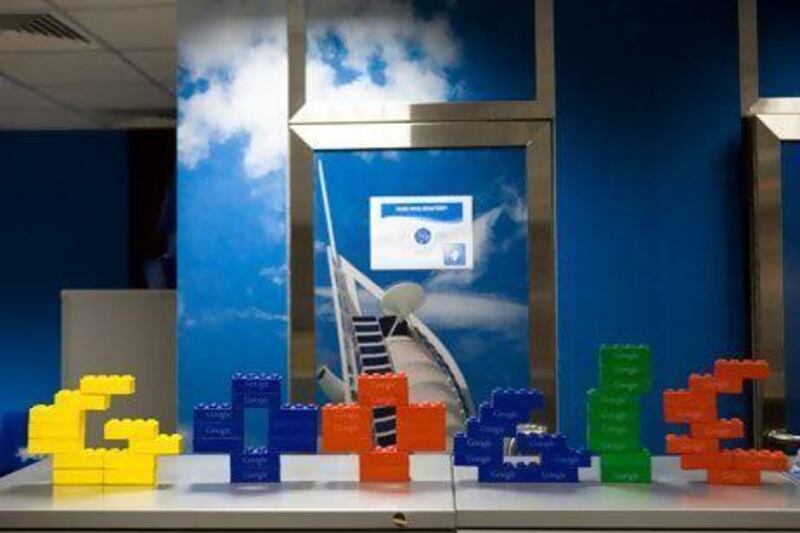A workplace culture that includes free food, foosball and video games may not sound like the best way to turn a profit.
Video:Tech Talk
Neil Parmar reviews the latest Sony Alpha 77 camera
[ More videos from The National ]
But search giant Google, which is one of the world's largest corporations, claims that a "fun" working environment makes business sense.
The firm's global headquarters at Mountain View, in California, has on-site beehives and goats grazing in the grounds. Its global offices have free food, chill-out zones and games.
Ari Kesisoglu, Google's managing director for the Middle East and North Africa (Mena), says the company's Dubai office, where he is based, has similar perks.
"We want to build products that affect billions of people. We want to think really big," says the 33-year-old executive, who started working at Google in 2005.
"And these projects are, I think, a result of the … environment that we have in the company. You are meant to have fun in the office."
Google's revenues for this year seem set to approach US$40 billion (Dh149.92bn), and the company is ramping up its sales team in the Mena region to capitalise on relatively small, but growing spending on digital advertising.
So can the company's quirky perks survive the increasing number of "suits" at the organisation?
Mr Kesisoglu - who has a sales background, and wears a suit - thinks so. In an interview with The National, he explains the business case for fun.
q&a
Q: Are Google's employee perks still appropriate today?
A: We are in the business of innovation. And you can create an environment where you help people think in innovative ways. But you cannot plan it. And that's where I think that Google's culture is playing an enormous role in the company's success so far.
Q: Your Dubai office features video games, a stuffed camel, and a foosball table. How do you get any work done?
A: You can be serious while having fun. And this is what we believe in as a company. It's a pretty open environment. If you have an idea you can just walk over to a few desks, speak to other people, and come up with a project in a relatively short time. That's what Google's culture actually helps our employees do.
Q: Hasn't Google's "jeans and T-shirt" culture inevitably given way to one of the "shirt and suit"?
A: No, definitely not. So far, we were able to keep the environment as innovative and as "Googley" as it can be. Obviously, I have seen this [company change] in the last six-and-a-half years. We have more processes, we are more of a global company, and we have more structures around things. But I think the core of what makes our culture is still here. And we're making a lot of efforts in preserving that.
Q: Your background is in sales and finance, rather than technology. Is that indicative of where the business is heading, in terms of a focus on monetisation?
A: Actually, it's the other way round. It shows how open we are about talent, and about giving opportunities for talent. It doesn't really matter what experience you have. Obviously we have requirements: you cannot code if you don't know the computer language. But for most of the other things we are pretty open as a company as to how your career will progress.
But profits still come first, right? What makes me happy is to work in an environment where profits are not the number one [priority]. Obviously I work in a private company, and ultimately we need to sustain our operations. But I want to know that we are working for a bigger purpose. And in Google's case, we definitely are working for a bigger purpose, which is to organise the world's information.
Q: How does the internet industry in the Mena region compare with other markets?
A: This is like Turkey four or five years ago, and Poland six years ago. The big moves come after the ecosystem wakes up. This is not only about the global companies starting to invest … That's why we're putting so much efforts in the region behind entrepreneurship, behind trying to get more businesses online.
Q: Wael Ghonim, one of the key voices in the Egypt uprising, worked at Google. Does Google do politics?
A: We don't. We're not a political organisation. What we do might touch politics. But as a company, we are providing the world with the technologies that make information available. We don't have an opinion: You might do many things with the information that you get. But we won't tell you want to do with the information, we will just make it available.
Q: Is it possible to operate like that in the Middle East?
A: So far, we have been able to operate like that. We didn't get intervention from the governments on our content. We don't censor our content.





